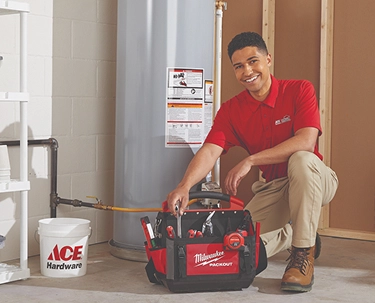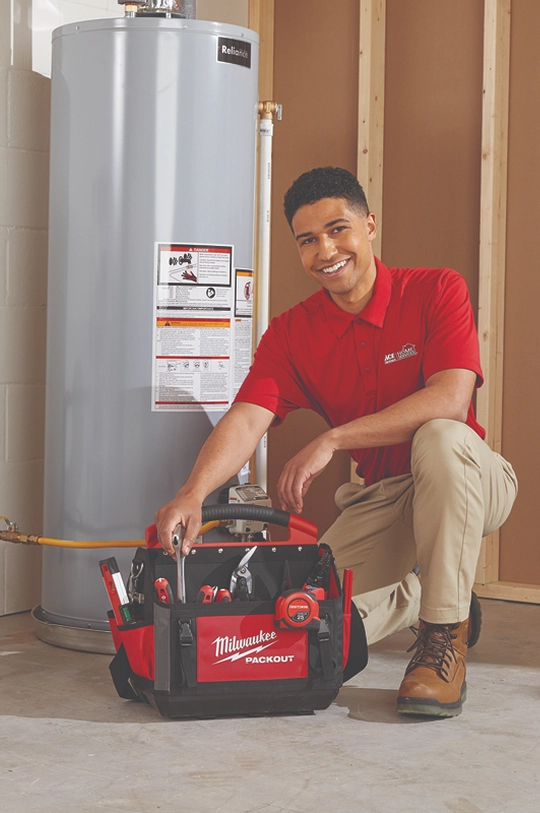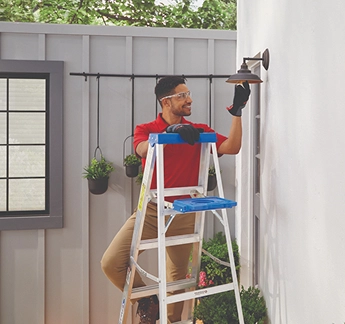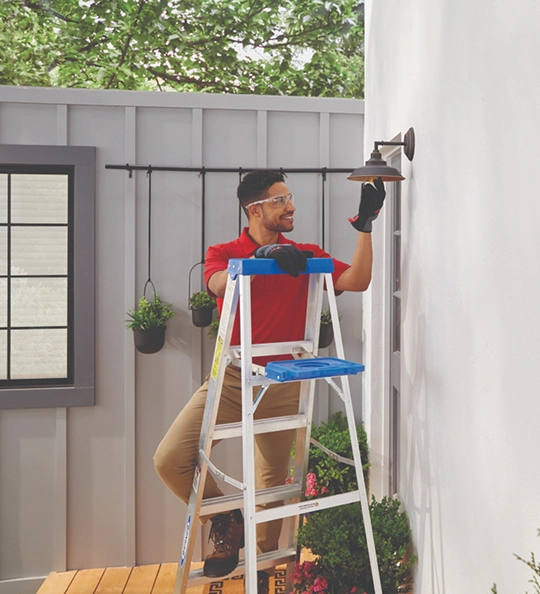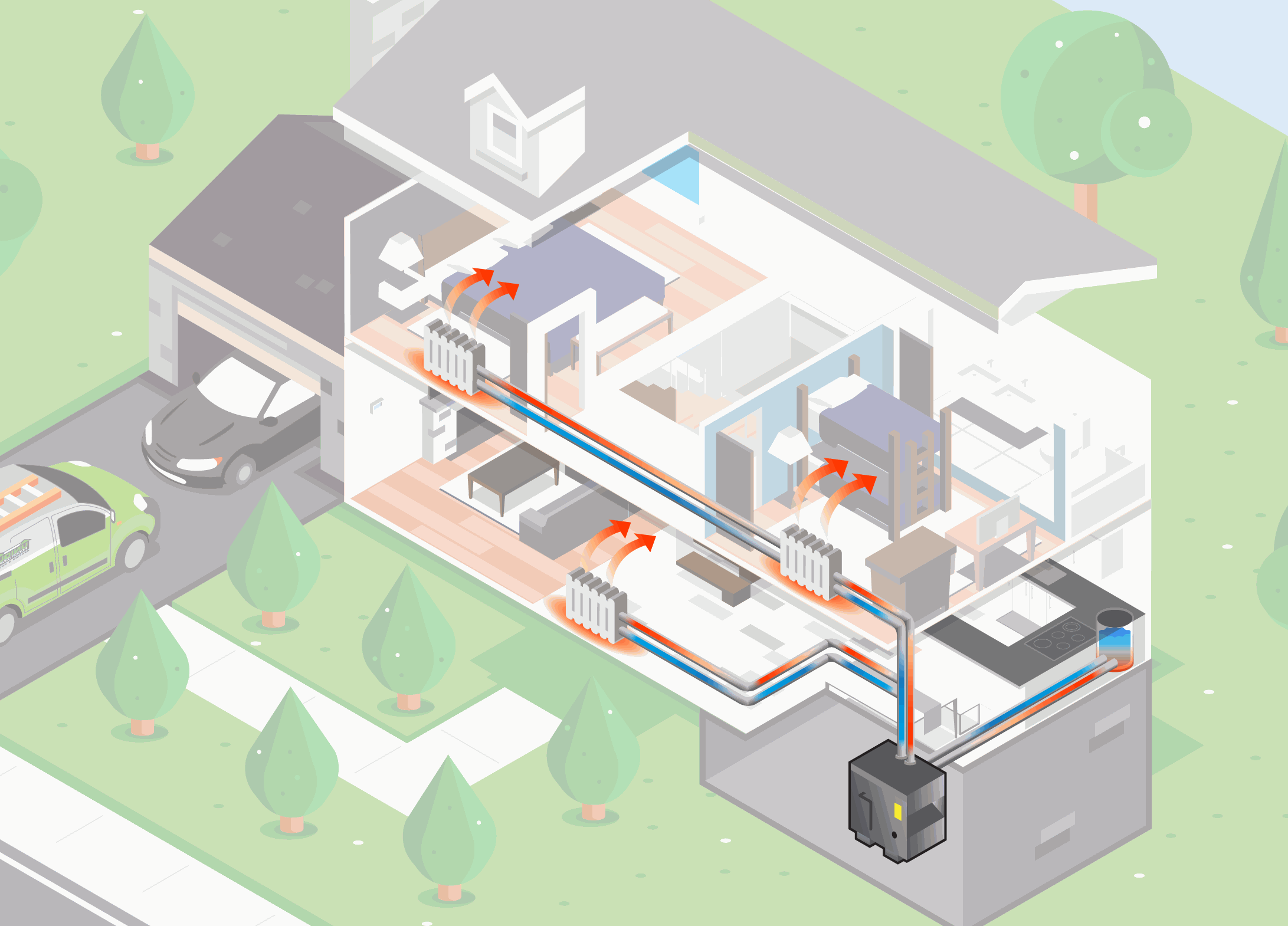
Boiler-based heating systems are one of the most common types seen in homes across the U.S. They are a great solution for many homeowners, as long as proper boiler maintenance measures are followed. When a boiler heating system is properly maintained, they are quiet, efficient and offer a flexible array of room heating approaches. They also put less dust and particulate into the air than forced air heating systems, so they can be helpful for people with allergies or respiratory problems. Contact us today for all your essential boiler maintenance and new boiler installation needs.
Compare a boiler system to the other types of home heating systems in our HVAC U article “Selecting a Home Heating System”.
How It Works
In the simplest terms, boiler-based heating systems heat water and distribute the hot water or steam to radiant heat sources throughout your house to heat the air, and is then circulated back to the boiler to be reheated.
There are several ways that the heat from the hot water can be transferred to the air in your home, including baseboard and wall-mounted radiators as well as radiant floor systems built into the floors of your home.
In order to heat water or produce steam that is then used to heat a home, a boiler must use one of three different fuel sources: gas, oil, or electricity.
GAS BOILERS
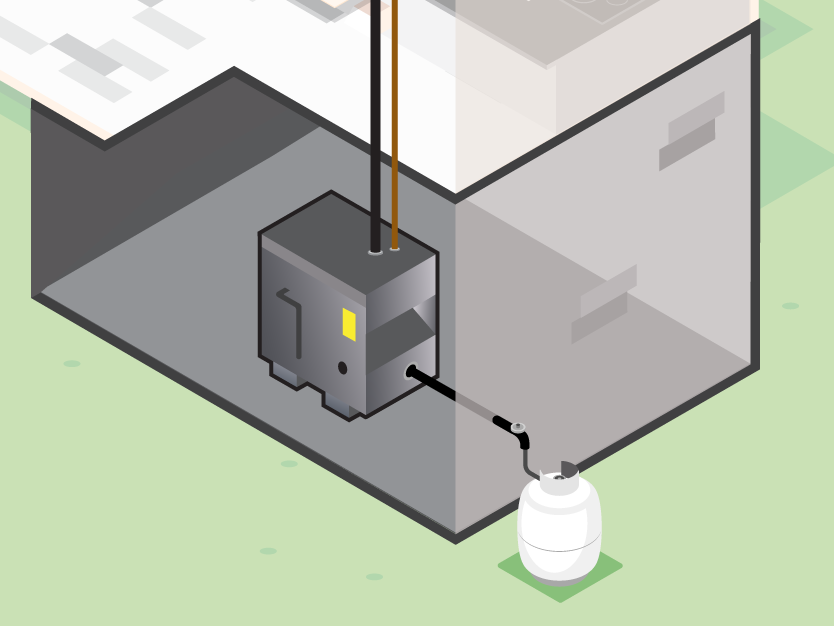
When alerted by your thermostat, a gas boiler uses either a pilot light or an electric start to ignite gas and oxygen inside a chamber. The chamber is a safe place where the gas is burned to produce heat. The burning gas heats up copper piping that transfers the heat to water. Gas boilers are the most common form of boilers and are more economical to install and operate. Gas boiler maintenance is simple as well, as they are cleaner and do not require manual fuel deliveries.
OIL BOILERS
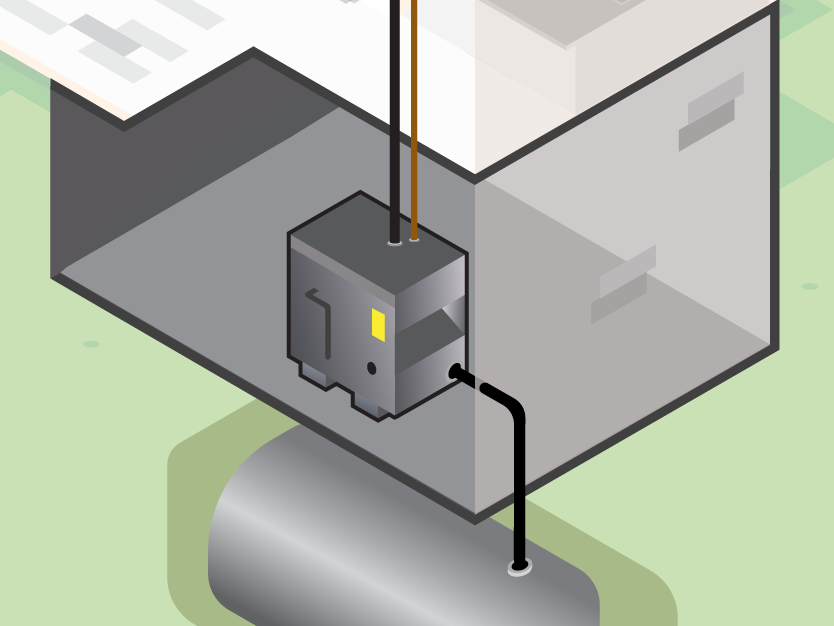
Oil boilers perform the same way as gas boilers: oil burns inside the chamber and heats up the copper pipes, which in turn heats the water. An oil boiler requires a large storage tank which some homeowners might not prefer. In addition, you need to have oil delivered to your home and pumped into the tank to be stored until it’s needed. Oil boilers are generally more expensive to operate and maintain. Oil boiler maintenance is often more time-consuming than gas or electric as well.
ELECTRIC BOILERS
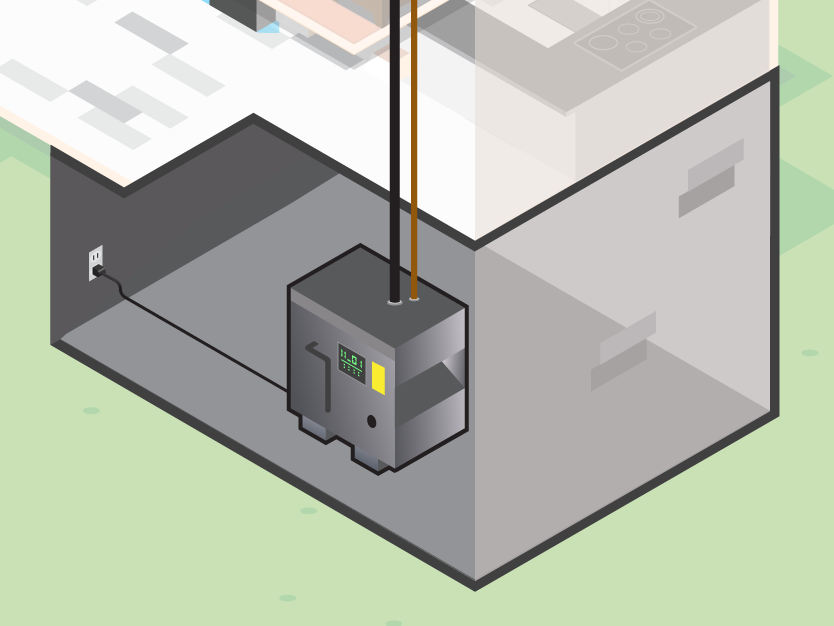
Electric boilers are usually used when natural gas is not available. An electric boiler uses electricity to heat things up the same way gas and oil boilers do. Electric boiler heating maintenance is minimal as they burn cleaner, but they are also more expensive to operate.
Why Choose Boiler Heat?
SPEED & EFFICIENCY
Water is a much more efficient medium for transferring heat than air, getting hot faster and staying that way for longer. This means that boiler based systems will heat up more quickly, and maintain heat more efficiently than most forced air systems.
BOILER MAINTENANCE
Boilers are one of the easiest heating systems to maintain, especially if you opt for natural gas or electric. Unlike oil boilers, gas and electric systems do not require fuel deliveries and are generally cleaner. To increase the lifespan of your system, we encourage homeowners to schedule professional maintenance annually. With proper boiler heating maintenance, these systems can last between 10 and 15 years.
AIR CLEANLINESS
Boiler-based heating systems are some of the cleanest ways to heat your home, largely based on the way that they heat the air. Unlike forced air systems which pull air into the system, heat it, then push it back out into the rooms of your home, boilers use radiant heat. This means that the air already in your home is heated just by coming in contact with a radiator, and no dust or particulate is added. This makes them a great solution for people with allergies or breathing problems.
EVEN HEATING
For the same reason that they are cleaner, properly designed boiler-based heating systems also spread the heat more evenly throughout your house. Instead of having specific locations where hot air is blown into the home, radiators heat the air around them as it circulates throughout your home.
QUIET OPERATION
Again, due to the fact that they aren’t actively blowing air around your home, boiler-based systems are much quieter than some other forms of heating. The total lack of fans and moving parts to circulate air means that you won’t even hear it when your heat comes on.
Considerations for Your Home
STARTUP COST
New boiler systems tend to cost more to install in a home than many other heating system types, especially if the home does not have an existing piping system to carry the hot water to radiators. Homes that already have ducts for forced air systems may want to consider just sticking with a solution that won’t require pipes to be run.
FUEL ACCESS
While there are many different types of fuel that can be used for boilers, by far the least expensive and most efficient is natural gas. If your home does not have access to natural gas lines, you may want to consider the fuel and potentially delivery costs before going with boiler heat.
Has your boiler experienced water damage? Click here to learn the steps you can take if your boiler is water damaged.
FAQ’s
HOW LONG WILL MY BOILER LAST?
A new boiler can last up to 15 years or even longer with good boiler maintenance practices. If repairs start adding up you should probably invest in a new one.
HOW OFTEN SHOULD I GET IT SERVICED?
It’s a good idea to schedule routine boiler maintenance at least once a year if you want to maximize its lifespan.
WHAT ABOUT CARBON MONOXIDE? DO I NEED TO WORRY?
Carbon monoxide is produced by the burning of fuel in your boiler, therefore you will need to monitor to make sure the exhaust stays in the exhaust pipes. To be safe, it’s a good idea to invest in a carbon monoxide detector for each floor of your home. It’s also a good idea to make sure the batteries are working and check them monthly.
HOW CAN I FIND AN ENERGY EFFICIENT BOILER?
To find out about the efficiency of a boiler, you need to check out its Energy Star rating. Modern boilers are way more economical and efficient than older models.
HOW DO I KNOW WHEN MY BOILER NEEDS TO BE REPAIRED?
If you’re cold, it’s likely you need to schedule a boiler maintenance request. However, most problems are usually a simple fix.
HOW HOT DOES A BOILER GET?
The average supply temperature for a baseboard or radiator-based heating system is around 180°F. In some cases, however, you can lower the supply temperature to save money in heating costs. You should discuss the implications of changing the temperature of your boiler with a technician.
